
Computer Science Major – Exploring Computer Science Courses
In the last ten years, the computer science major has exploded in popularity. In fact, it’s one of the most popular majors for undergraduates. Moreover, many college students take computer sciences courses—even if they don’t choose to commit to the full major.
Before you begin a computer science major, it’s important to know what you’ll be studying. If you’ve already taken classes like AP computer science, you may be familiar with key computer science subjects. On the other hand, if computer science is brand new to you, don’t worry! You don’t have to know anything about computer science before starting college.
In this article, we’ll cover everything you need to know about becoming a computer science major, including:
- What is computer science?
- What jobs can you do after you get your computer science degree?
- How much do computer science majors make?
- What are the best computer science courses?
- What are the best computer science colleges, ranked?
- What does a computer science curriculum entail?
- How can I make the most of a computer science degree?
- And much more!
But before we dive into the computer science major, let’s start by defining what computer science is.
What is computer science?
Computer science is the study of computers and computational systems. If that sounds like a broad topic, that’s because it is. Computer science encompasses a wide range of different fields and activities—and isn’t just programming.
Contrary to common belief, a computer science major is not only about programming. Your computer science curriculum will be a lot broader and may include topics like algorithms, data structures, machine learning, theoretical computation, networks, and more. The major involves problem solving just as much as it does basic math skills.
A computer science curriculum can also be heavily theoretical. Just like some higher level mathematics courses, in computer science you will likely study logic, proofs, and theories. Additionally, computer science majors can actually be very interdisciplinary. That means that the computer science curriculum can contain aspects from other disciplines like mathematics, engineering, and biology.
Often, graduates of a computer science major go on to have careers in areas like software development or data analysis. But, in our increasingly digital world, a computer science degree can help prepare you for a successful career in a variety of different fields.
Computer Science or CS?
So what’s the difference between computer science vs. CS? In short, nothing! CS is just an abbreviation for computer science. So, if someone says they’re majoring in CS, that just means they’re pursuing a computer science major.
CS is often used in academic settings to refer to computer science. Consequently, many computer science courses will refer to the discipline as “CS.” Take Harvard for example. Harvard computer science courses, like CS50: Intro to Computer Science, use the abbreviation.
What does a computer scientist do?

A computer science degree can open up the door to many different careers. For instance, a CS major might become a software developer and work for a small tech startup. Or, they might become a systems analyst who identifies, researches, and solves problems in databases or other information systems. Depending on your goals, you might also double down and get another computer science degree, like a masters or PhD.
Day-to-day, computer science majors may complete a variety of tasks. They could be designing algorithms or developing software, conducting research, building privacy protections through cybersecurity, or doing UX design. Computer scientists often work with many people in a company, requiring them to be collaborative, innovative team members.
No matter which computer science major jobs you think you might pursue, problem solving will likely be central to your daily work. So if you’re a critical thinker with great attention to detail, a computer science major could be right for you!
Why study computer science in college?
Still not convinced? Here are some reasons why you should pursue a computer science major.
Overall, there’s a high demand for computer science majors, and there’s a lot of flexibility in your potential career opportunities. Since almost every industry increasingly works with databases and algorithms to some degree, computer science majors can fit into many different fields. Whether it’s healthcare, finance, or entertainment, there are plenty of great computer science major jobs out there. You might even get the opportunity to work for companies like Amazon, Apple, or Bank of America.
There are also very competitive salaries for computer science majors. How much do computer science majors make? Well, the average base salary for a computer scientist is $124,030 per year. And that’s just for the job of computer scientist, one of many jobs you could pursue as a computer science major.
For some, pursuing computer science might seem daunting, especially if you’re someone whose identity is not represented very often in the field. However, don’t let that discourage you! Join organizations at your college that uplift and unite students, and focus on finding community with other people who understand what it’s like to be underrepresented in a field. And if you’re still unsure, try talking with students who currently major or did major in computer science for an inside look at what it’s like.
As a computer science major, you’ll get to be constantly thinking and problem solving. It’s a very creative career that also allows you to have an impact on society. All we ask is that if you do become a computer science major, please don’t skip the ethics class in your computer science curriculum!
Computer Science Fields
As a computer science major, you’ll likely tailor your computer science curriculum to a specific computer science field. Here are some common computer science fields that you might encounter in your college’s computer science curriculum:
Artificial Intelligence
AI focuses on creating machines that can perform tasks that would normally require a human brain, like recognizing speech and language and making decisions. There’s a lot of different types of AI, but one recognizable current example is ChatGPT, which is a Large Language Model.
Machine learning
This is a subset of AI where you build algorithms that allow computers to learn over time. Using machine learning, computers improve their performance without being explicitly programmed to.
Cybersecurity
This speciality area of computer science is of growing necessity in our increasingly digital world. The realm of cybersecurity is all about protecting data and computer systems from online attacks.
Data science
This area combines statistics, data analysis, and machine learning to extract insights from large datasets. If you’re doing any kind of predictive analytics, that usually includes some data science.
Software engineering
This computer science field involves designing, developing, testing, and maintaining different software applications and systems.
Since CS is a pretty broad discipline, some computer science subjects will differ based on where you go to school. For example, MIT computer science courses may have some overlap with Harvard computer science courses or the computer science curriculum at Stanford. However, each school will also provide different and unique opportunities for students looking to concentrate on certain topics within CS.
Stanford, for instance, offers eight different tracks, or areas of focus, within their computer science curriculum. Stanford’s tracks include CS topics such as AI, Graphics, and Biocomputation. You can imagine how different the computer science courses would be in each of these areas! Some colleges even let you specialize in topics such as Game Design.
Let’s dive a little deeper into what topics you’ll learn in your computer science courses.
What do you study in computer science?

In your computer science curriculum, you’ll start by taking computer science courses that cover foundational topics. These courses will prepare you to branch out into more specialized fields, like the ones we mentioned above.
Some foundational topics might include:
- Algorithms, where you learn how to solve problems efficiently;
- Data structures, where you learn how to organize and store data in different formats;
- Computer architecture, where you learn about the physical hardware that powers our computers;
- Theory of computation, where you’ll learn about the limits of computation and how to measure algorithms’ efficiency.
Computer science subjects cover a blend of practical, hands-on skills and theoretical learning. On the practical side, you’ll gain proficiency in programming languages like Python, Java, C++, and JavaScript, and tools such as version control (Git), IDEs (Integrated Development Environments), and databases (SQL). Your computer science course list will also help you learn how to develop frameworks, test algorithms, and debug code.
The theoretical side of computer science subjects is very important and guides how you write the best code, design efficient algorithms, and build scalable applications. You’ll use the skills you learn in your computer science degree to take on coding assignments that solve real problems.
The computer science curriculum can sound like a lot, but you’ll master the computer science course requirements in no time. By the time you’re done with the basics on your computer science course list, you’ll get to move onto more advanced and niche topics, which make for some of the best computer science courses.
Computer Science Major Requirements
Every computer science degree requires you to fulfill some computer science course requirements. The best computer science courses will vary from school to school, but you’ll always encounter a combination of foundational courses, specialized skills, and theoretical vs. practical application. Computer science course requirements also typically involve some math courses.
For example, Harvard computer science courses include prerequisite math courses like precalculus, linear algebra, and probability. This is in addition to their core CS classes, which include programming, formal reasoning, and advanced computer science subjects.
At Carnegie Mellon, the computer science course list says that students must take principle courses on computation, programming, data structures, computer systems, and theory. In addition, they must also take one AI elective, one Domains elective, one Logics/Language elective, one Software/Systems elective, two school of computer science electives, and six math courses.
Suffice it to say, though you don’t need to be a math genius to be a computer scientist, you’ll certainly need to enjoy it enough to fulfill the computer science course requirements in order to get your computer science degree.
What kinds of courses do Computer Science Majors take?
Whether you’re looking at a list of MIT computer science courses or a course list at any of the best computer science colleges, there will be some similarities. Here are a few foundational courses you’ll likely take as a CS major:
CS Foundational Courses

Introduction to programming
You’ll learn basic programming concepts, as well as programming languages like Python or Java.
Data structures
These courses teach you how to organize and manipulate data efficiently. Different data structures you might learn about include arrays, linked lists, stacks, queues, trees, and graphs, which are essential for solving complex computational problems.
Operating systems
These courses cover how computers manage resources like memory, processes, and file systems. You’ll also learn how software interacts with hardware, like the actual machines of computers.
Algorithm design and analysis
These classes introduce how to create efficient algorithms, and how to analyze them. You’ll study different types of algorithms, searching techniques, and different ways to problem solve, like “divide-and-conquer” or “dynamic programming.
Beyond these core courses, you’ll take specialized electives based on which of the computer science fields speak most to you. The computer science fields you pursue will determine your coursework, and the college you attend will play a role as well. So, when you’re applying for colleges, it’s important you look at their computer science course list to figure out the best computer science courses for your intended course of study.
For example, at MIT, one of the best computer science colleges, many of the majors are interdisciplinary. Therefore, their computer science course requirements may look a little different than those at a strictly CS-focused program. Depending on what computer science major jobs you plan to pursue, you may look for a program with course options that align with your goals.
Computer Programming Language Courses
If there’s one thing you’ve probably heard about computer science courses, it’s programming. Programming is the process of writing computer programs; it’s done using a language—and there are a few of them.
It’s important to learn multiple programming languages because each language has its different strengths and is used in different contexts. Learning different languages also helps you become more versatile and allows you to tackle different computer science major jobs.
Some common languages are Python, Java, and C++. Python is a classic beginner language, and is often used in data science, machine learning, and automation. Java is object-oriented and platform-independent, and is used in large-scale systems. C++ is more powerful, and is a high-performance language used in game development and systems programming.
Some courses at the best computer science colleges may focus on teaching a specific language, like MIT’s Introduction to Computer Science and Programming in Python or UT Austin’s Computer Programming: C++. Other programs, like UCLA’s course in Programming Languages, teach students multiple languages, allowing them to gain a deeper understanding of programming concepts across different computer science fields.
Best Computer Science Courses

So what are the best computer science courses? Well, you may think they’re whatever the best colleges for computer science, or great STEM schools like MIT, Stanford, or Carnegie Mellon, are offering. In truth, the best computer science courses will be those most relevant to the kind of work you hope to one day do.
Ideally, the best computer science courses will strike a balance between theoretical knowledge and practical application, and will help you build a strong foundation in fundamental concepts while also developing real-world skills. But courses like these can exist in any discipline—and the best CS courses will depend on your personal goals.
For example, if you’re interested in hardware or design, courses like Database Systems, Computer Architecture, and Networking might be more valuable to you than courses about AI or machine learning. However, if you’re interested in AI, you’d likely enjoy a slightly different courseload: classes in areas like Neural Computation, Deep Learning, Reinforcement Learning, or Robotics would be more suited to your interests and career goals. If you want to be a data scientist, or invent the next big thing in AI, these courses will be essential for your career.
If you’re reading this and have no idea which area of computer science sounds most interesting to you, that’s totally okay! It’s a varied, complex discipline with many exciting pathways. To get a taste of what you might do in a college-level CS class, you can take a free online course to get a baseline familiarity with common programming languages and better prepare yourself for undergrad.
You can also prepare by attending a summer program that focuses on CS or other STEM fields. This isn’t just a way to prepare for college, but a fun experience where you can meet other people who share your interests!
Is Computer Science a BS or BA?
Typically, if you major in computer science, you’ll graduate with either a Bachelor of Science (BS) or a Bachelor of Arts (BA). The difference between the two degrees is usually based on whether the program emphasizes technical skills and sciences, or includes a more liberal arts, broad-based education.
A BS in Computer Science generally emphasizes technical skills and a scientific approach to computing. In a BS program, you’ll often be required to complete more math-heavy and technical courses, such as advanced algorithms, computer architecture, and data structures. A BS might require more science, math, and engineering courses to provide a deeper understanding of computational theories and the more technical aspects of CS.
If you get a BA in CS, you may be able to take advantage of a more flexible curriculum that combines these technical courses with other liberal arts subjects. While still covering core CS principles like the ones we talked about on our computer science course list examples above, a BA may allow students to take additional courses in humanities or the social sciences. If you want to use your CS degree to do something in a field like business or healthcare, a BA will give you a more well-rounded education.
Ultimately, the choice between a BS and BA in CS depends on the type of career you want to pursue and whether you want to emphasize technical expertise or a broader education. It also might just depend on what school you go to. For instance, Georgia Tech only offers a BS degree, whereas UT Austin gives you the option to pursue a variety of degree types, including a BS, BA, and a BSA (the Bachelor of Science and Arts). So, make sure you’re thinking about your degree when building your college list!
Best Colleges for Computer Science Majors
The best computer science colleges offer students fantastic opportunities to earn a computer science degree. Here are the top 20 schools with computer science majors:
Top 20 CS Schools
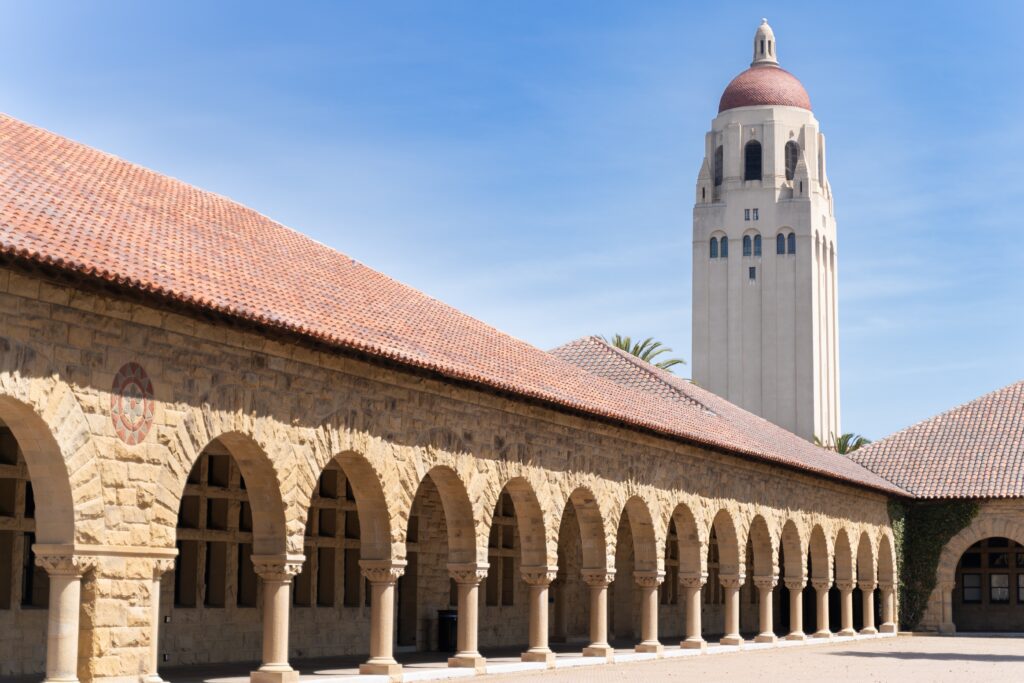
- Stanford University
As one of the best schools for computer science, Stanford offers students the opportunity to pursue a BS or Joint Major/BAS. Students can also specialize in one of nine concentration areas, including Biocomputation and Human-Computer Interaction.
2. Carnegie Mellon University
Located in Pittsburgh, Carnegie Mellon offers a BS in computer science and an interdisciplinary Bachelor of Computer Science and Arts. Core CS courses include Principles of Functional Programming and Parallel and Sequential Structures and Algorithms.


3. Massachusetts Institute of Technology
The most popular majors at MIT fall under the category of computing. Students can explore a variety of majors and blended majors, from Electrical Engineering and Computer Science to Urban Science and Planning with Computer Science.
4. University of California–Berkeley
There are two paths to becoming a computer science major at UC Berkeley. One is a BS through the College of Engineering, while the other is a BS through the College of Computing, Data Science, and Society. Both programs cover the same CS course content, so the path you take really depends on your other interests.


5. Princeton University
This New Jersey school offers two types of CS majors: a Bachelor of Arts and a Bachelor of Science in Engineering. Students at Princeton can customize their coursework to match their interests. However, a key part of Princeton’s computer science curriculum, regardless of major, is completing an independent project.
6. University of Illinois–Urbana-Champaign
At the Siebel School of Computing and Data Science, computer science students will earn a Bachelor of Science degree. Students can follow this computer science curriculum map, which shows key courses such as Discrete Structures and Computer Architecture.

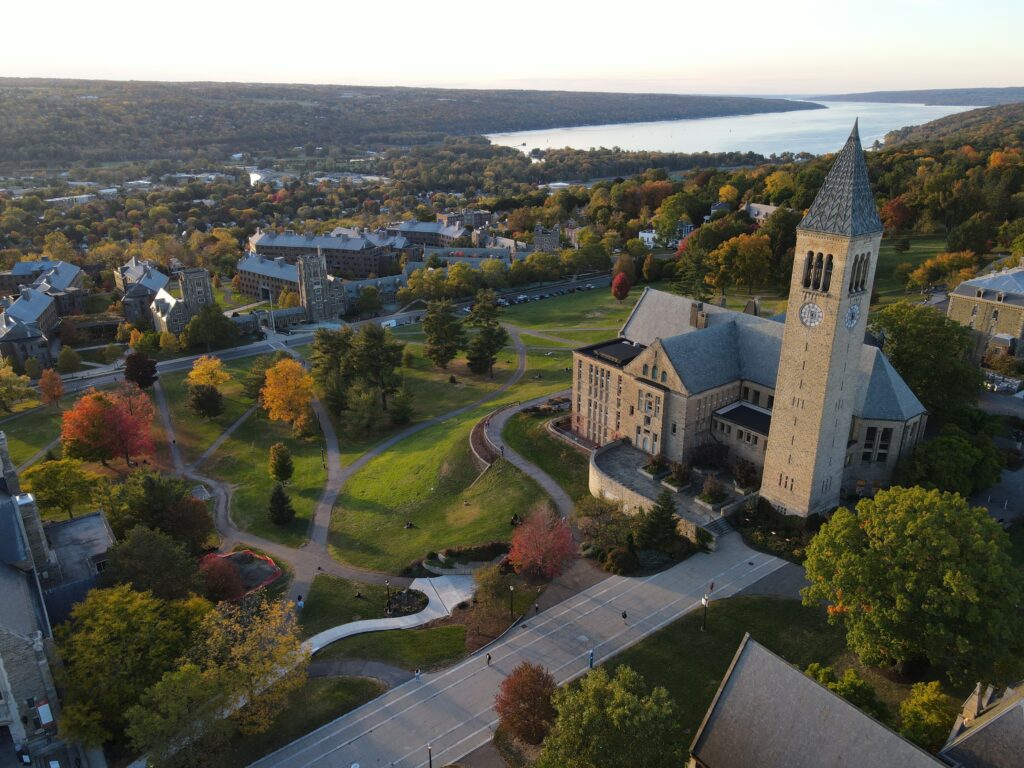
7. Cornell University
At Cornell, students have the option between a BS and BA computer science degree. After completing introductory CS coursework, students can enroll in advanced courses such as Principles of Large-Scale Machine Learning and Foundations of Robotics.
8. Georgia Institute of Technology
Specialization and customization is a key opportunity for BS computer science majors at Georgia Tech. Students can pursue one of eight threads, or concentrations, including Devices, Intelligence, and Cybersecurity & Privacy.
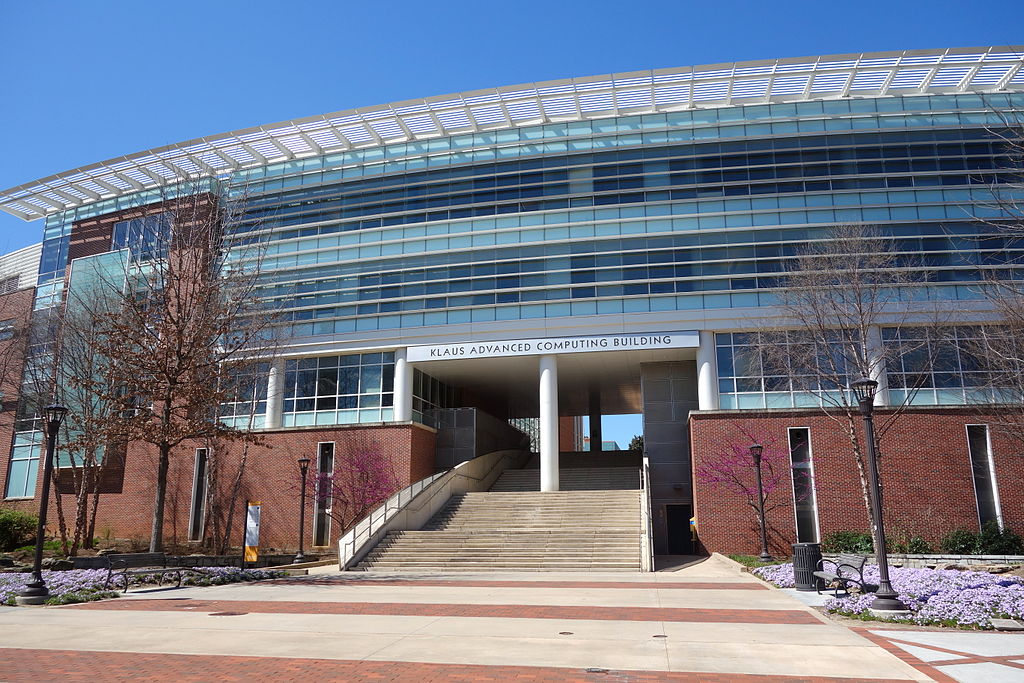

9. University of Washington
Like many other top programs on our list, the University of Washington offers two CS degrees through their College of Arts & Sciences and their College of Engineering. Along with a Bachelor of Science, computer science students at UW can also pursue an additional distinction in data science.
10. California Institute of Technology
If you’re interested in double majoring, CalTech’s flexible computer science curriculum may be for you. In addition to foundational coursework, CS majors must complete a CS Project Sequence. Unique to CalTech, this comprises a project, a thesis, or a three-quarter sequence of courses in topics such as Graphics, Robotics, and Quantum & Molecular Computing.


11. University of Michigan–Ann Arbor
At UMich, students can choose between a Bachelor of Science or a Bachelor of Science Engineering. Core requirements will be the same regardless of which college you choose to pursue your major in. However, to complete your CS major, you’ll also need to complete your college’s specific requirements.
12. University of Texas–Austin
UT Austin offers more than 50 courses in computer science, six concentrations, and five undergraduate degree programs. CS topics include Principles of Computer Systems, Computational Organization and Architecture, and Algorithms and Complexity.

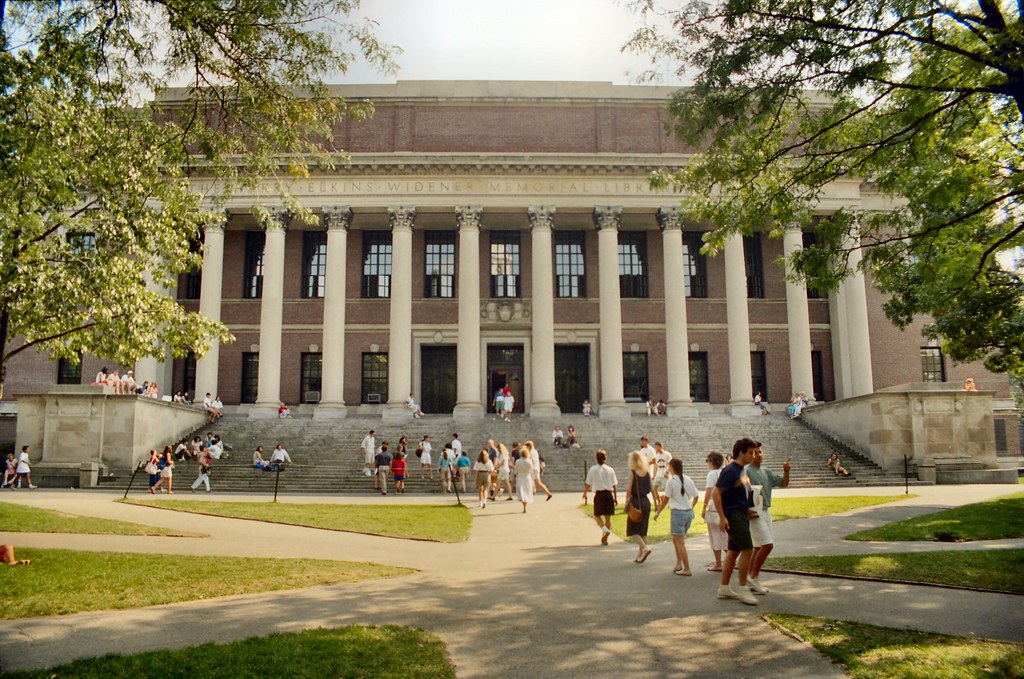
13. Harvard University
Computer science students at Harvard will earn a Bachelor of Arts degree. Harvard computer science courses cover foundational mathematics as well as computer software and theoretical computer science. Their courses include Abstraction and Design in Computation and Code, Data, and Art.
14. University of California–Los Angeles
UCLA’s computer science curriculum covers key courses in computer networks, operating systems, algorithms, and programming languages. Along with their BS coursework, students will need to apply their learnings and complete an engineering or product design capstone course.
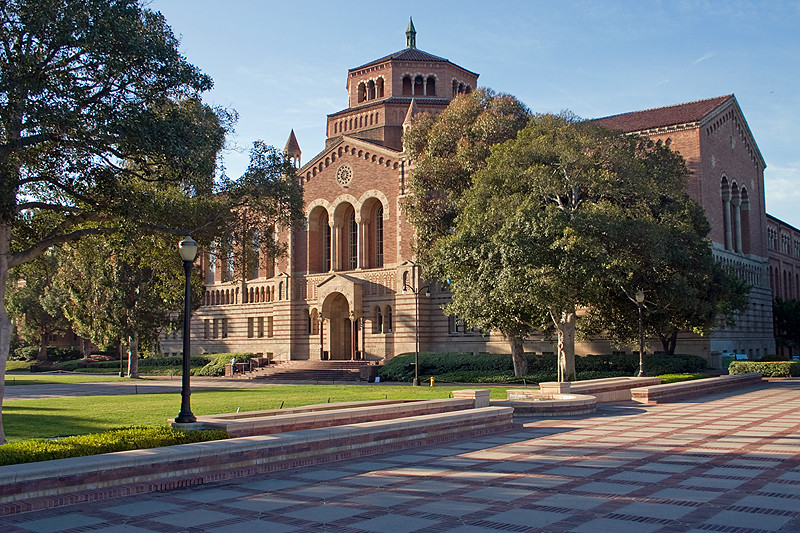

15. University of California–San Diego
Once UCSD students have completed their core CS courses, students can pursue electives in three key areas: systems, theory/abstraction, and applications of computing. In addition to earning their BS, students at UCSD can also pursue a specialization in Bioinformatics.
16. Columbia University
Whether earning a BS or BA in Computer Science, Columbia students take coursework in everything from programming languages and computer architecture to mathematics. Core coursework includes Data Structures, Discrete Math, and Advanced Programming.

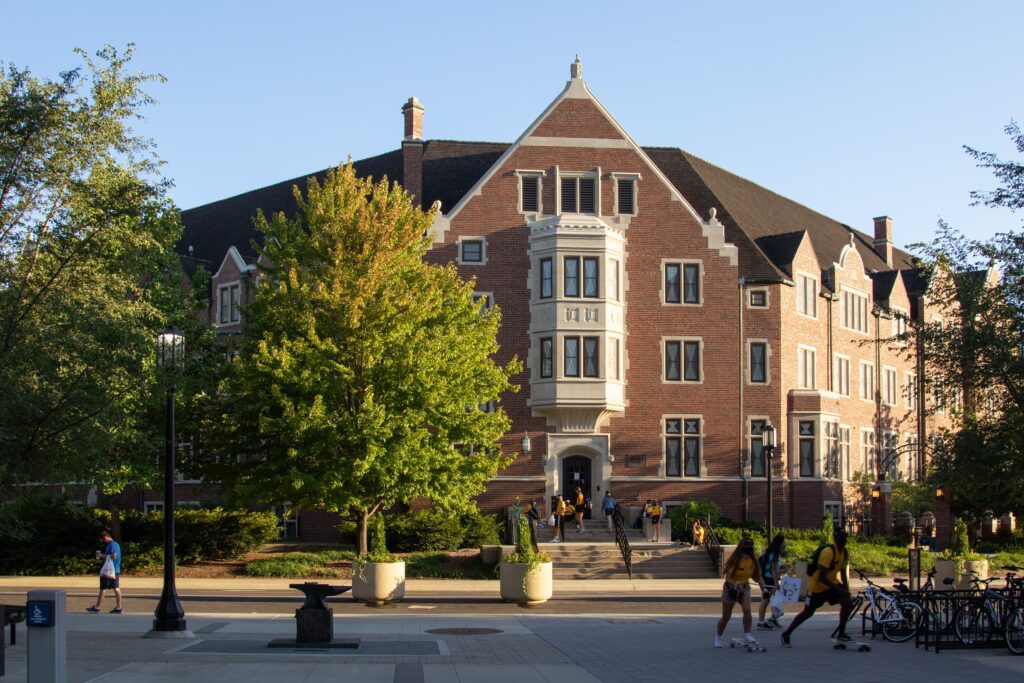
17. Purdue University–West Lafayette
If you’re looking for flexibility, consider Purdue’s CS program. With only six required foundational courses and nine distinct tracks, Purdue allows students to customize their studies to fit their interests and goals.
18. University of Wisconsin–Madison.
In addition to their major requirements, undergraduates at UW–Madison must complete the College of Letters & Science Breadth requirements. This means students will take courses in humanities, social science, and natural science, as well as advanced math and computer science courses.

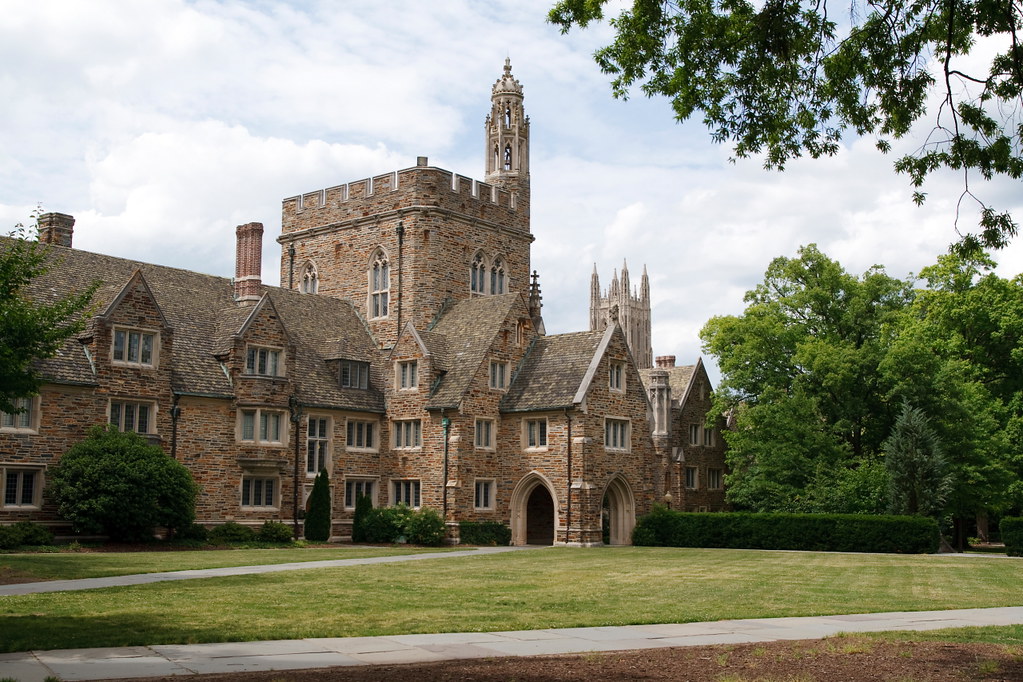
19. Duke University
Along with their BS and BA computer science programs, Duke offers an Interdepartmental Major. While requirements vary by major, students can take unique CS courses like History of Computing, Cryptography, and Robotic Devices and Introduction to Digital Feminism.
20. Johns Hopkins University
As you might expect, the last school on our list, Johns Hopkins, offers both BS and BA programs in computer science. To complete their core requirements, students will need to complete a Gateway Computing course in either Java, Python, or Matlab. Further along, students take courses like Data Structures and Computer System Fundamentals.

When exploring the best CS schools, be sure to look into their available courses and computer science degree programs. Some schools offer multiple computer science degrees, while others offer a singular computer science major with various tracks or specializations. Looking at computer science course lists, like this UCLA catalog, can help you see what computer science courses a school offers.
As you build your list of computer science schools, research important opportunities outside of your computer science courses. Industry connections, expert faculty, and research projects can all help you build up your network and resume to jumpstart your career.
Graduate Computer Science Degrees
If you end up loving your computer science courses, you might consider continuing your education in CS. Pursuing a graduate program provides countless benefits beyond additional computer science courses, including advanced skills and research opportunities that can advance your career.
Graduate degrees in computer science include both master’s and doctoral degrees, and many of these programs offer opportunities for specialization. For instance, Stanford offers nine unique predefined specializations, including Software Theory and Human-Computer Interaction. You can also consider combined computer science degree programs during your undergrad, such as the University of Illinois Urbana-Champaign’s joint five-year programs.
As you look to the future, you might be wondering, how much do computer science majors make with a graduate degree? In general, students with graduate degrees tend to reach a higher annual income compared to those with bachelor’s degrees. However, there is some nuance to this. If you can get a great job right out of undergrad, a few years of experience can help your career too.
On the other hand, if you’re considering specialized computer science subjects, such as AI or Computational Finance, another degree might be a key stepping stone. The rigorous computer science curriculum within these degrees will provide students with the qualifications necessary to enter into these higher-paying, niche positions.
6 Essential Skills for Computer Science Majors
Despite the complexity and variance among computer science subjects, there are some key skills that will help you succeed. Here are 6 essential skills you’ll need to lean on and develop as you work through your computer science course requirements:
Essential Skills for CS Majors

Analytical Thinking
Being able to evaluate and solve complex problems is a crucial skill for any computer science major. In fact, being detail-oriented in your work will help you catch issues, find solutions, and be confident in the work you are producing.
Programming Skills
If you’re interested in developing software, you’ll need to be proficient in one or more programming languages.
Mathematical Foundation
Most computer science course lists include foundational courses in mathematics. A strong grasp of mathematical concepts, including logic, statistics, and discrete math, will help you solve problems and work with abstract concepts.
Communication Skills
While communication skills aren’t a formal requirement for a computer science major, they are crucial for building a successful career in CS. The ability to effectively convey ideas and technical information to diverse audiences is key to collaborating across teams and with relevant stakeholders.
Teamwork and Collaboration
Innovation rarely occurs in isolation, which is why effective teamwork is essential to any computer science major. Collaborating with peers helps you learn, grow, and refine your skills, while also teaching you how to work with others.
Adaptability
Your ability to thrive in a computer science major—and your future career—is directly related to your willingness to learn and adapt. In such a rapidly evolving field, your success will depend on continuously improving your skills and remaining open to change.
Throughout your computer science major program, you can expect to learn and develop a variety of hard and soft skills. With these skills, you’ll be prepared to succeed in a variety of computer science fields and careers.
Applying to College as a Computer Science Major
The best computer science colleges are often competitive, and many routinely top national lists of the best undergraduate universities. So, you’ll need to show that you’re a good fit for the school and demonstrate your ability to handle their computer science curriculum.
One great opportunity to do this is in your essays. For instance, MIT requires students to complete five short-answer questions, one of which asks about your field of study. This is a great opportunity to highlight specific MIT computer science courses or opportunities that you believe will help you achieve your goals.
Letters of recommendation are another excellent opportunity to showcase your strengths and build your character. Academically, taking challenging coursework in math and science shows you have a solid foundation to build upon. For example, consider taking AP Calculus or AP Computer Science if your school offers it.
Additionally, be sure to highlight any relevant experiences in your application. This could include personal coding projects or a roadmap to how you got interested in computer science. For example, if you’ve taken any of the free Harvard computer science courses on Python or TinyML, use that. Find a way to highlight what you learned and how it has prepared you to handle your computer science course requirements.
Outstanding extracurriculars for prospective CS Majors
As previously mentioned, hands-on experience is a great way to impress admissions at the top schools for computer science. If you are a high school student interested in pursuing a computer science degree, here are a few extracurriculars you might consider joining:
Extracurriculars for CS Majors

Coding Clubs
If your school doesn’t already have a coding club, consider starting one! These are a great opportunity to collaborate on projects and learn together alongside your peers.
Tech Competitions
Students who’ve already started learning coding should consider participating in hackathons, coding competitions, or robotics contests to gain hands-on experience.
Volunteer Opportunities
Teaching coding or tech skills to younger students or community members is great for a number of reasons. You can get involved with your community while strengthening your technical and communication skills.
Online Courses
There are plenty of free or low-cost online courses in programming and computer science topics to build your skills. Just look at this computer science course list from GitHub; it covers CS programming, math, systems, theory, and more.
Summer Camps
Use your summer to attend tech-focused summer camps or workshops. If you’re looking for opportunities, check out TeenLife’s collection of Computer Science Summer Programs.
Open Source Contributions
If you learn by doing, you can look into getting involved in open source projects on online communities like freeCodeCamp. Online forums like these can help you get real-world coding experiences while collaborating with and learning from others.
These experiences can help you feel more comfortable with your computer science curriculum before you even set foot on campus. Plus, they might even help you get a better sense of what kind of careers you may be interested in. In turn, this can help you narrow down your computer science course list once you start college.
Internships and Research Opportunities for Computer Science Majors
Fulfilling your computer science course requirements will likely be your main focus in college. However, there’s a lot more to get involved in to help set you up for success—specifically, internships and research opportunities. These kinds of opportunities are irreplaceable; even the best computer science courses can’t compete with real-world experiences.
While you’re still in school, be sure to seek out summer or part-time internships. Leverage your school’s career services if available, like Cardinal Careers or the Computer Forum at Stanford, to help you find opportunities. Internships are great opportunities to learn soft skills you might not otherwise learn in your courses. Plus, doing well in an internship might eventually lead to a job offer once you’ve completed your computer science major.
On-campus, you should also consider pursuing an independent study project or participating in undergraduate research programs. These opportunities will allow you to explore specific interests within your computer science major under faculty guidance. This can enhance your learning and, if you plan to pursue an advanced degree, strengthen your graduate school applications.
The Social Side of Computer Science
While the day to day tasks of a computer scientist may involve individual work, many computer science fields rely heavily on collaboration. The most innovative ideas often come from working with others, and social skills are important for many of the best computer science major jobs.
Outside of your computer science courses, take advantage of the many opportunities to network and put your computer science curriculum to work. Even the best computer science courses can’t replace real-world, hands-on experiences. So, here are a few ways you can get involved as you earn your computer science degree:
Getting Involved as a CS Major

Student Organizations
Join computer science clubs or tech-related student organizations, like Carnegie Mellon’s Computer Club or USC’s chapter of the ACM (Association for Computing Machinery). Student orgs like these provide opportunities for you to connect with likeminded peers, attend workshops, and participate in events.
Hackathons
Participate in hackathons, like HackMIT, to work collaboratively on coding projects with students from your school or around the world. A hackathon is a great opportunity to enhance your skills while learning from and networking with industry professionals.
Tech Meetups
Local tech meetups, conferences, and events offer amazing opportunities to engage with the broader tech community in your area. You can easily find information online, and your campus student organizations are also a great resource for discovering more meetups!
Coding Competitions
Competing in programming contests, such as ICPC or Google Code Jam, is a surefire way to put your computer science curriculum to the test.
Online Communities
The great thing about computer science is there are plenty of communities you can join digitally. Online forums and communities (like GitHub or Stack Overflow) offer opportunities to share knowledge, seek help, and even build your professional network.
Research Groups
Be sure to look for faculty-led research teams on campus to gain experience in cutting-edge topics and contribute to projects in developing computer science fields.
These extracurriculars are a great way to go beyond your computer science course requirements and develop yourself as a collaborator and an individual.
Computer Science: The Changing Demographics
Although computer science continues to be an in-demand major, there’s certainly a long way to go when it comes to racial and gender diversity. Like other STEM majors, computer science is a male dominated field; only 21% of computer scientists are female. Additionally, more than half of computer scientists are white, around 64%.
While there’s a lot of room for improvement, there are plenty of organizations working to close the inclusion gap in CS. For example, the nonprofit organization Code.org is working to provide all K-12 students, especially underrepresented groups, with opportunities to learn computer science. Georgia Tech’s College of Computing webpage provides a great list of organizations, like the Association for Women in Computing and Color Stack.
Why is diversity important to CS majors? Well, the benefit of diverse teams is well documented, and the field of computer science is no different. Bringing together a breadth of individuals, with different perspectives, experiences, and strengths, is key to fostering innovation and creativity.
Next, let’s turn to trends in computer science curriculum and education and what that means for future computer science majors.
Future Trends in Computer Science Education

These days, there are more and more paths to becoming a computer scientist. With the rise of online learning and MOOCs (Massive Open Online Courses), a CS education is now more accessible than ever. Indeed, some of the best computer science courses are now online and free to the public. However, that doesn’t mean there aren’t key benefits to pursuing a formal undergraduate degree in CS.
In particular, it’s important to think about a specialization. There are plenty of computer science major jobs opening up in emerging fields such as AI and machine learning. Therefore, some of the best computer science courses will be ones that cover these specialized topics. Additionally, new courses, such as ethics in AI, will become increasingly important as these fields continue to grow.
At the best computer science colleges, you can also take an interdisciplinary learning approach, integrating your computer science curriculum with other fields. For instance, MIT’s blended major of computer science and molecular biology combines core MIT computer science courses with biology courses such as genetics. Pursuing this type of education can widen your skill set while also preparing you for niche, emerging fields.
Is computer science right for you?
At this point, we’ve reviewed what to expect from a computer science degree program, including core computer science curriculum courses and requirements. But how do you decide if computer science is the right major for you?
If your only question about computer science is “how much do computer science majors make?”, you might want to reevaluate your goals. While computer science major jobs are lucrative, they are also challenging. Ask yourself, do you enjoy problem-solving? Are you interested in technology?
For students not sure about computer science, a good way to gauge your interest is to take a real computer science course! Try taking an introductory course or a coding bootcamp to see how you take to the material. If it’s challenging, but you want to learn more, then it could be a good fit. Being curious, persistent, and passionate will help you succeed in even the most challenging computer science subjects and courses.
Computer Science Major- Takeaways
In this article, we did a deep dive into the computer science major. We provided an overview of a computer science curriculum, including key concepts and the best computer science courses to get you started.
As a computer science major (or CS major), you will become an expert in all things computers and computational systems. While computer science course requirements will vary by program, there are certain core concepts you can expect to encounter. In your classes, you’ll learn about algorithms, data structures, programming languages, and more.
Alongside your core computer science curriculum, you should plan to pursue extracurricular organizations, research opportunities, and internships. These hands-on experiences, along with your computer science major coursework, will help you develop the skills you need for a successful career.
Are you interested in pursuing a computer science major at one of the best schools for computer science? Remember that you don’t have to do it alone! CollegeAdvisor can help you find the best computer science major program for you—and help you craft a stellar application.

This article was written by Rachel Kahn and Stefanie Tedards. Looking for more admissions support? Click here to schedule a free meeting with one of our Admissions Specialists. During your meeting, our team will discuss your profile and help you find targeted ways to increase your admissions odds at top schools. We’ll also answer any questions and discuss how CollegeAdvisor.com can support you in the college application process.
